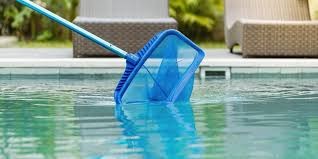Owning a swimming pool is a luxury that comes with the responsibility of regular maintenance. Proper care ensures that your pool remains safe, clean, and inviting. However, even experienced pool owners can make mistakes that lead to costly repairs, safety hazards, or reduced water quality. Here are the top seven pool maintenance mistakes and how to avoid them to keep your pool in pristine condition. For more information check out pool contractors
1. Ignoring Regular Water Testing
The Mistake: One of the most common mistakes pool owners make is neglecting to test their pool water regularly. Without proper testing, it’s impossible to know if the chemical levels are balanced, which can lead to issues like algae growth, cloudy water, or skin and eye irritation.
How to Avoid It: Test your pool water at least once a week using a reliable pool testing kit. Check key parameters such as pH, chlorine levels, alkalinity, and calcium hardness. Adjust chemicals as needed to maintain balance. Regular testing ensures that your pool water remains safe and clear, preventing potential problems before they arise. For more information check out pool company in dubai
2. Overlooking Proper Filtration
The Mistake: The pool filter is responsible for removing debris and contaminants from the water. However, many pool owners forget to clean or backwash their filters regularly. A dirty or clogged filter can’t function effectively, leading to poor water quality and increased strain on the pool pump.
How to Avoid It: Clean or backwash your pool filter according to the manufacturer’s instructions, typically every 1-2 weeks or when the pressure gauge indicates it’s necessary. Additionally, schedule a deep cleaning of the filter at least once a season to ensure optimal performance.
3. Not Brushing and Skimming the Pool
The Mistake: It’s easy to rely solely on the pool’s filtration system to keep the water clean, but manual cleaning is also essential. Neglecting to brush the pool walls and skim the surface can lead to the buildup of algae, bacteria, and debris, especially in hard-to-reach areas.
How to Avoid It: Make brushing and skimming a regular part of your pool maintenance routine. Brush the walls, steps, and corners of your pool at least once a week to prevent algae and dirt buildup. Skim the surface daily to remove leaves, bugs, and other debris before they sink and cause further problems.
4. Improper Chemical Storage and Handling
The Mistake: Storing pool chemicals improperly or mixing them incorrectly can be dangerous. Chemicals can react with each other or degrade over time, leading to reduced effectiveness or even hazardous situations.
How to Avoid It: Store pool chemicals in a cool, dry, and well-ventilated area, away from direct sunlight and moisture. Keep them in their original containers and ensure the lids are tightly sealed. Always read and follow the manufacturer’s instructions for handling and mixing chemicals, and never mix different chemicals together.
5. Neglecting to Monitor Water Levels
The Mistake: Maintaining the correct water level is crucial for your pool’s overall health. Water that’s too low can damage the pool pump by causing it to run dry, while water that’s too high can interfere with the skimmer’s ability to clean the surface effectively.
How to Avoid It: Check your pool’s water level regularly, especially after heavy rainfall, extensive use, or during periods of evaporation. The water level should be about halfway up the skimmer opening. Adjust as needed by adding or draining water to maintain the ideal level.
6. Running the Pool Pump for Insufficient Time
The Mistake: Some pool owners try to save on energy costs by running the pool pump for only a few hours each day. However, this can lead to poor water circulation, ineffective filtration, and increased algae growth, ultimately requiring more chemicals and maintenance.
How to Avoid It: Run your pool pump for at least 8-12 hours a day during the swimming season, or longer if needed, to ensure proper water circulation and filtration. Consider investing in a variable-speed pump, which can run continuously at lower speeds, saving energy while maintaining water quality.
7. Skipping Regular Pool Inspections
The Mistake: Many pool owners wait until a problem arises before inspecting their pool equipment and structure. This reactive approach can lead to minor issues becoming major repairs, such as leaks, equipment failure, or structural damage.
How to Avoid It: Conduct regular inspections of your pool and its equipment. Check for cracks in the pool structure, leaks in the plumbing, and wear and tear on pool equipment like the pump, filter, and heater. Address any issues promptly to prevent them from worsening and becoming more costly to fix.
Conclusion
Maintaining a swimming pool involves more than just keeping the water clean. By avoiding these common maintenance mistakes—such as neglecting water testing, improper chemical handling, and insufficient pump operation—you can ensure that your pool remains a safe, inviting, and enjoyable space for years to come. Regular attention to detail and proactive care are the keys to a well-maintained pool, saving you time, money, and headaches in the long run.



